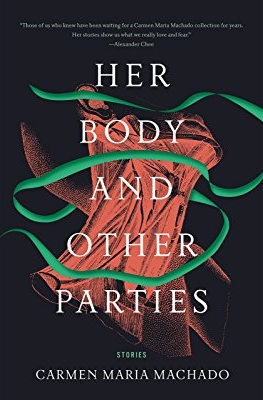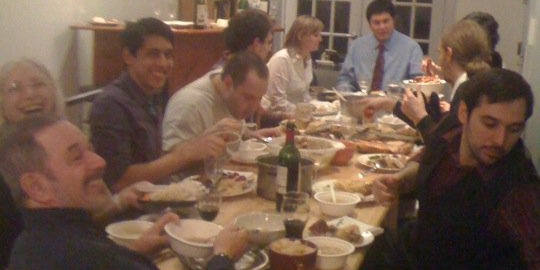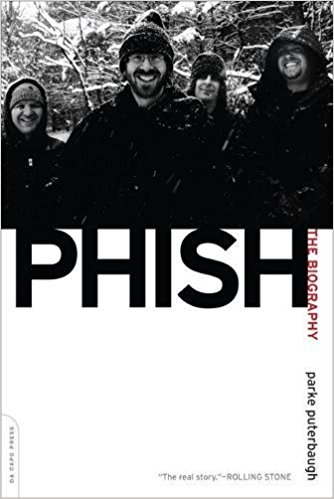Fifteen years ago when I came to Canada as a student, I remember one of my Iranian friends who had come a few years earlier asked, “Are you going to put up a Christmas tree in your house?” We were walking together in Vancouver’s Broadway Street, ornate wreaths were attached to every light post we passed. Crimson little globes glittered in between the glabrous leaves of holly that embellished the glass vitrines of stores and coffee shops. The Christmas celebration, golden and glamorous, kept me in a state of wonderment and awe. I was new to North America and the festivities around the New Year in the Western world. And so was my daughter, age seven, who kept asking me if we were going to get her a Christmas tree where she could hang the tiny ornaments she’d received from her friends in school. “No, we will continue to enjoy from afar,” I said to my friend as we entered a cozy coffee shop to have hot cider and a cinnamon roll. He laughed out loud at my resistance and said, “Well, I’m sure you will, just like us. After a few years you’ll surrender to your kids.”
A week ago, I had the pleasure of visiting Rome for the first time in my life. Rome, with the magnificent Vatican City, seemed the most desirable city on earth to be in at Christmas time. I strolled along the narrow cobblestoned alleys flanked by hundreds of little pizzerias and pasta houses and coveted the spirit of celebration wafting its way in those tiny shops and restaurants: a waiter erecting a tall branch of spruce at the corner of a pizza house, a young girl with a red and white checkered apron placing gingerbread Babbo Natale in the display window of a gelato bar, a rosy-cheeked little girl pulling her mama’s hand for a red rain boot with a snowman on its vamp.
I remembered my kids asking about Santa and Christmas, and their questions about exchanging gifts. Every time, I came up with an answer explaining that we, as Muslims in America, do not share the same beliefs as Christians, trying to persuade them to turn their eyes away from the glittering gifts. As an Iranian, I told them about Yalda when we get together with friends on the night of December 21st, the winter solstice, and celebrate the victory of light over darkness on the longest night of the year. I clung to the celebration, arranging a colorful table with bowls of nuts, watermelon, pomegranate seeds and sweets and I let them stay awake until late at night. We read the poems of Hafiz and, most importantly, I offered them gifts that were not part of the celebration. I struggled to compensate for the presents they never received under a Christmas tree.
Last year on Christmas Eve, I was invited to a feast hosted by a friend of mine from high school who I serendipitously found after thirty-some years. When I arrived, her twin boys were playing with a remote controlled electric train that chugged under the Christmas tree and emerged clickety-clacking and whistling from the other side. They couldn’t speak Farsi and greeted me in English with perfect American accents. My friend had made fesenjoon, an Iranian dish made with walnuts and pomegranate molasses, to celebrate Christmas ‘Iranian style.’ As she ladled fesenjoon on my plate of basmati rice, she asked the same question I’d encountered fifteen years ago. “Do you put up a Christmas tree in your house?” I smiled and praised her artfulness in making such a delicacy with ingredients so scarce in America, trying to divert the conversation to the tasty side of the evening. My friend talked about a visit they had paid to the Washington National Cathedral a few days before. In St. Mary’s chapel, one of the twins had approached her and asked about the figure of Christ on the cross. “Who’s this man on the cross?” he’d simply asked. My friend had given some information about Jesus, which of course, didn’t sound exciting for a five-year-old with no religious upbringings.
After dinner, the twins gathered around the Christmas tree to play with the rattling train. As I helped to stow the remaining food in the fridge, my friend said, “Even if we were brought up in secular families, we were taught the foundations of Islam in school. At least we knew how to pray when we were in dire straits. We had something to hold on to. But my kids, they don’t even know the concept of god.”
In Rome, I saved the visit to St. Peter’s Basilica in Vatican City for the last day. There in the Basilica, I melted in front of the Pieta by Michelangelo. There was a peculiar gaze in Mary’s face that seemed different from all the statues that embellished every corner of that magnificent Basilica. “Ecce Homo,” she whispered in my ears. “Behold this unblemished, paragon phoenix of life.” People posed in front of the Pieta, took selfies with their mobile holders jutting out, smiling, craning their heads toward each other, hugging, pointing to Mary and Jesus in her hands. I wondered if they’d heard the words she whispered in the silence of the Basilica. The agony that was etched in Mary’s eyes was a mere reflection of the beholder’s own knowledge and past experience. Only those who knew her aching story could fathom the anguish that was carved in her outstretched arms as she held her son on her lap. I wondered if my kids would have realized what it meant to hold the weight of a complete human being in one’s hands.
At night, I walked all the way from St. Peter’s Basilica to the Spanish Steps to see Rome in her nightly beauty. On one of the landings between the flights of low steps, the city workers were erecting a grand Christmas tree. They had barred the landing with florescent warning tapes, only permitting people to pass through a narrow rim. Tourists glanced at the giant tree as they trudged up the one hundred and thirty-five steps toward the top of the hill. Rome glittered with her shiny cathedral domes and bejeweled streets. Fifteen years and I still revered Christmas from afar. I still wouldn’t erect a Christmas tree in my house, believing there should be a meaning bound to any ritual we add to our lives. What role does an emblem play for us if it’s hollowed out of the historic connotation it has? What will my children learn from me if I put up a Christmas tree in our living room? Wouldn’t their festivities be a mélange of Christmas and Yalda, amalgamated together, inane and empty of a spirit that can redeem their souls when they are lost?
Fifteen years have passed and I moved from Canada to the United States more than a decade ago. Every year, I take my kids to the Ellipse in front of the White House to show them the National Christmas Tree and the fifty decorated trees that represent each state in the country. The mirth of Christmas has seeped into our lives in a subtle, inappreciable way. We share the joy with the Christians of America at the end of the year. There is so much to learn and admire about the essence that flows through the rituals of this holy celebration. But to strip the meaning from the Christmas tree and adorn the barren branches with gilded ornaments, just to be the same as our neighbors, this is what I refuse to do. Our identity is highlighted by the differences we recognize in one another, by appreciating the agony of Mary marveling at the magnitude of her Son’s sacrifice for humanity, and by realizing the glory of a culture that celebrates the triumph of light over darkness on the longest of nights. The luminous candles on the Christmas tree remind us of the birth of a star and the ruby seeds of the pomegranate we savor at Yalda resemble the glow of life. These symbols convey a lore we believe can walk us out of darkness and lead us to the eternal bliss.
I looked down the Spanish steps at the newly erected Christmas tree and admired its halo of light. A fine snow dusted the emerald pine needles and made it glow. The Christmas tree looked beautiful from afar.
























